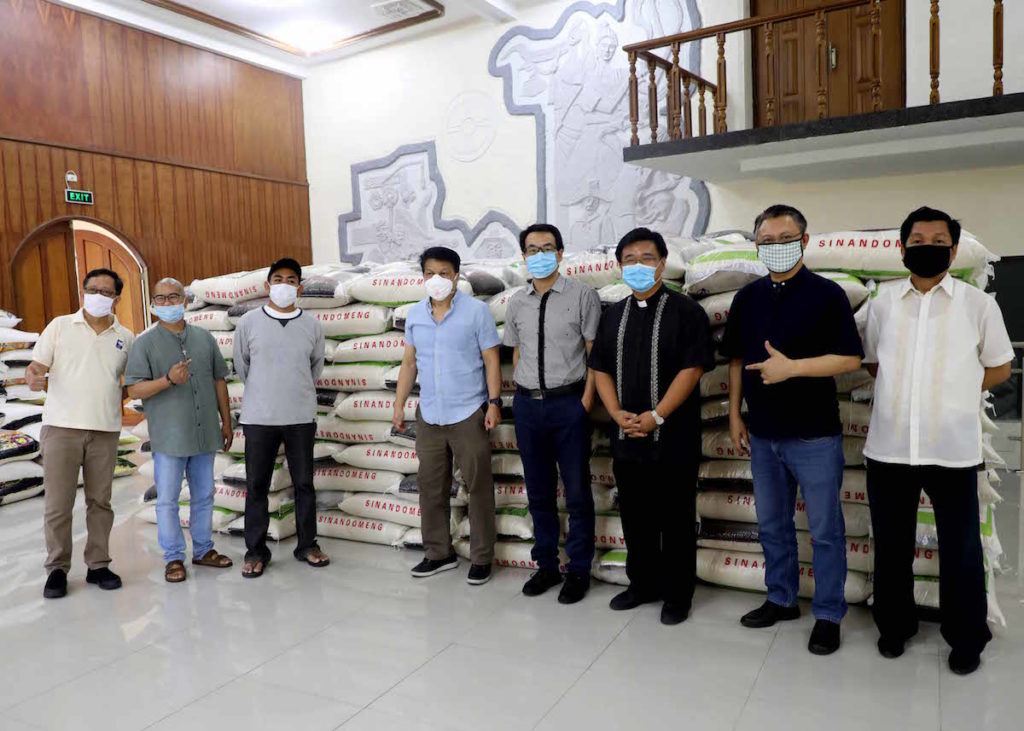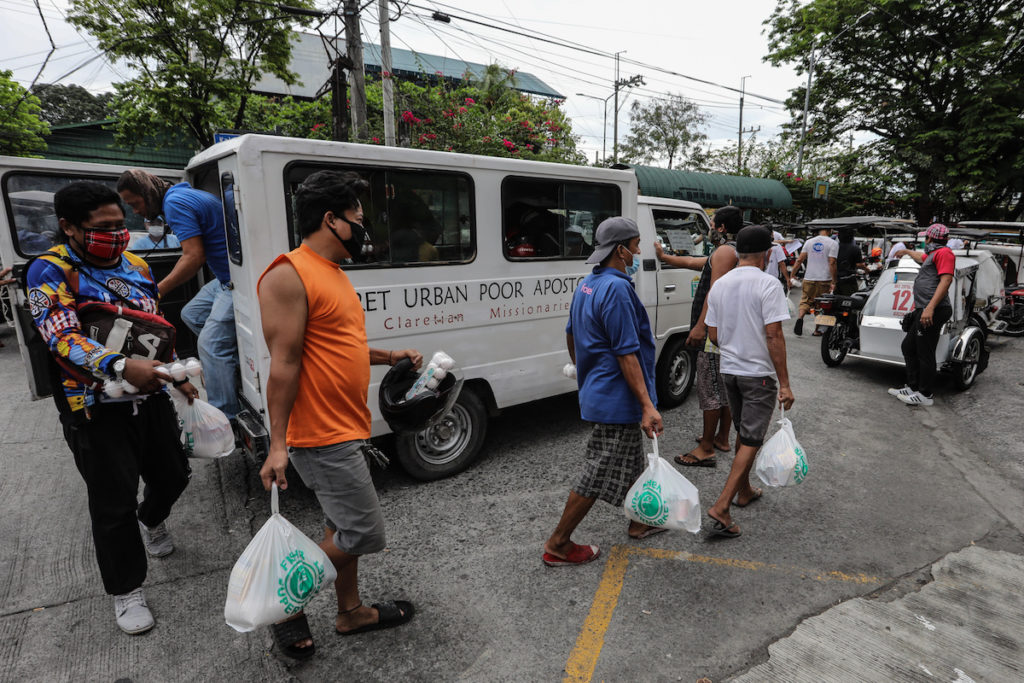A church-run radio network was able to link Catholics in China with urban poor communities in the Philippines despite the global health crisis brought about by the coronavirus pandemic.
In recent weeks, Radio Veritas Asia facilitated the distribution of aid from mainland Chinese Catholics to poor communities most affected by a lockdown in Manila.
The radio network’s Mandarin Service based in Manila reported that it received from Catholic donors in China about US$85,000 that was spent to buy more than 45,000 kilograms of rice.
Father Joseph Leo, coordinator of Radio Veritas Asia’s Mandarin Service, told LiCAS.news that 99 percent of the donations came from listeners in mainland China.
“The largest donation came from Wenzhou Diocese,” he said. Religious groups in Tianjin, Guangzhou, Fuzhou, and Chinese priests and nuns also sent donations in their “personal capacities.”
Since the onset of the new coronavirus outbreak in the Philippines, the radio network’s Mandarin Service has been reporting the impact of the lockdown on poor Filipinos.
“When our listeners heard and our viewers saw the reports, they paid special attention to the life of the poor,” said Father Leo.
He said people in China “understood the conditions of the poor because they have their own lockdown experience” during the early days of the global pandemic.
Donations from Catholics in mainland China started to pour in after the radio service called on the faithful to share their blessings during “these difficult times.”
Radio Veritas Asia donated the contributions they received to several religious institutions and Catholic charities working among the poor in the Philippine capital.


Vincent Helps, the charity arm of the Congregation of Missions in response to the pandemic, received about US$15,000 from Radio Veritas Asia that used to provide food packs to about 60,000 poor families.
Father Daniel Franklin Pilario of the Vincentian congregation said the generosity of Catholics in China offered hope to poor Christians in the Philippines.
“We need that sense of solidarity in this time of crisis,” said the priest. “It is quite a difficult challenge because everyone is affected by the pandemic in one way or another,” he said.
Father Pilario said the crisis invites Catholics in Asia to become “a beacon of hope” to those who are in need. “It invites us to champion social solidarity,” he said.
The Claret Solidarity Group of the Claretian missionaries also received support from Radio Veritas Asia that covered aid for at least 1,200 families in an urban poor community in Quezon City.
Claretian priest Alejandro Gobrin said the program was able to triple the number of beneficiaries because of the donation provided by Radio Veritas Asia.
“We were told that most of the donations actually came from poor Chinese Catholics,” said Father Gobrin. “It only shows us that the poor help the poor regardless of nationality or race,” he said.
The priest said the focus of the Claretian’s solidarity project is to bring food aid to the most vulnerable sector, including the elderly, the sick, and women and children in poor communities.
Another group that benefited from the donation of Chinese Catholics is the Arnold Janssen Kalinga Center that provides shelter to at least 446 homeless people in Manila.
The center, which has eight safe shelters for the homeless in church-run institutions and schools, was set up by Father Flaviano Villanueva of the Society of the Divine Word.


Father Victor Sadaya, CMF, general manager of Radio Veritas Asia, said the media network will continue to serve as conduit for Christians in Asia and across the globe.
“It is one of our major contributions during this time of the pandemic,” said the priest. “Now we realize the important role of Catholic media and the power of communication,” he told LiCAS.news.
In June 2018, Radio Veritas Asia transitioned from short-wave radio broadcasting to a full digital media network with 22 major language services.
“As church media, we pay attention to the people’s needs, especially the poor because they are at the bottom of society,” said Father Leo of the Mandarin Service.
He said the church media is “a bridge between the poor and the rich” even during normal times.
The Mandarin Service has earlier established a “charity desk” for the poor that extends aid to different communities around the country.


